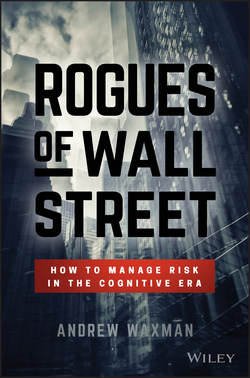Читать книгу Rogues of Wall Street - Waxman Andrew - Страница 12
На сайте Литреса книга снята с продажи.
CHAPTER 2
The Rogue Trader
How Rogue Traders Succeed
ОглавлениеWith gatekeepers at every step in the process of trade execution – supervisors, controllers, operations, counterparty operations – one might think that to elude them all is some sort of magic feat. While there is certainly some skill involved, it is not magic but a couple of crucial factors that enable some Rogue Traders to escape detection for so long (see Table 2‐1).
Table 2‐1 Infamous Rogue Traders
First is the incentive structure still in place at investment banks. Traders' compensation has traditionally been binary and asymmetric, rewarding profit taking without punishment for losses and risky activities. Too often, management looks the other way to reward profits from risky trades. This is shortsighted. As history has shown, the winning trades of today are often the huge losses of tomorrow. Second is the problem of not big but “mega data.” Banks are drowning in data. Millions of trades are executed every day at the major investment banks. Even a small percentage of exceptions – trades that are canceled or corrected – is a few thousand on a daily basis, and so it is next to impossible to find the cancels and corrects of the Rogue Trader amongst the normal, regular, and benign flow of business corrections. In a similar vein, large investment banks trade with hundreds of counterparties; if one is fictitious, it will be very hard to find. Yet both these problems have their corollary in solutions.
